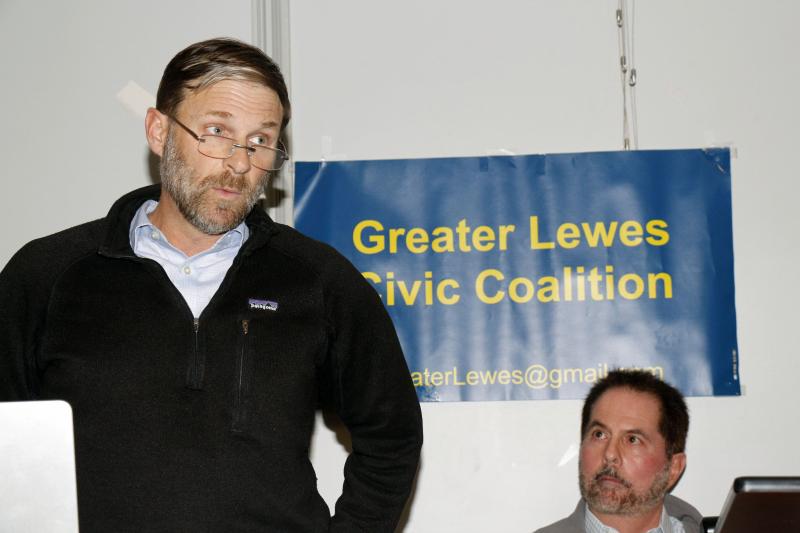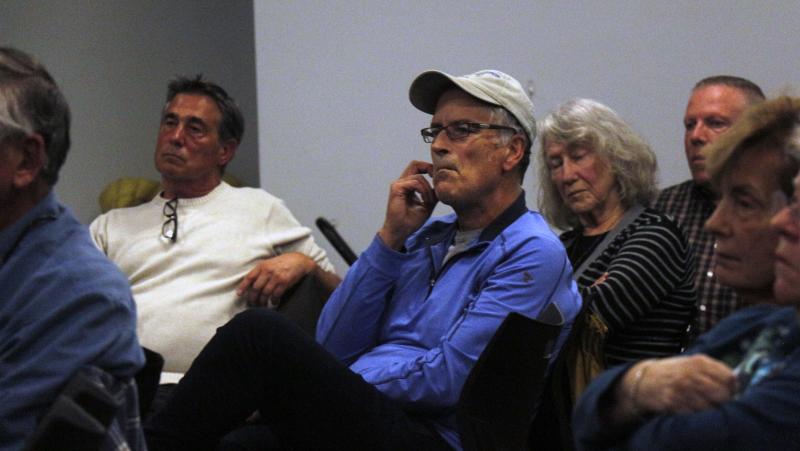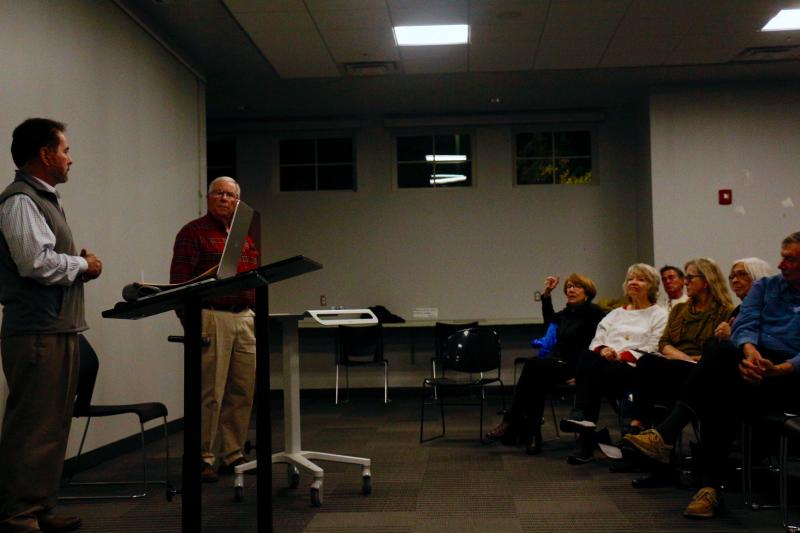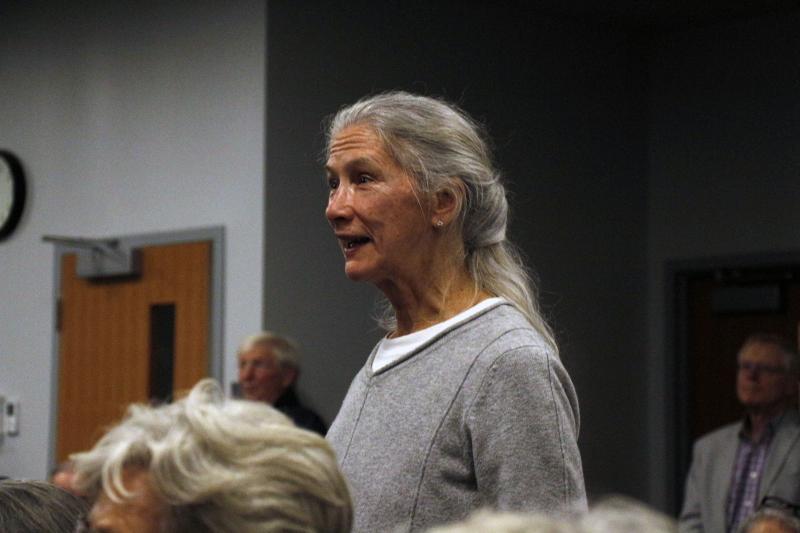Elected officials discuss state of Lewes
Sussex County Councilman Mark Schaeffer says it’s not realistic to halt development.
People have constitutional rights and elected officials must follow those rules, he said during a State of Lewes meeting hosted by the Greater Lewes Civic Coalition Nov. 28.
Schaeffer’s honest answer came in response to questions about overdevelopment and what could be done about it. The District 3 councilman said the appropriate approach is to get ordinances passed that would require a more holistic process for development. He says he has proposed more regulation on development, such as requiring the infrastructure to be in place before development begins, but has not had any success.
Schaeffer wants to encourage healthcare facilities, fire and EMS structures, schools and daycare facilities. Schaeffer said he believes too much pristine farmland and forest have been removed without amenities being built close to new developments. He noted that travel time to reach necessary services and businesses is too long for people living in certain developments.
Resident Gail Van Gilder questioned Schaeffer’s approach to sprawl because he has previously suggested building more east of Route 1 and increasing the density of coastal towns. Van Gilder said residents in coastal towns don’t want more density. She explained that development was supposed to go concurrent with the transfer of development rights and that didn’t happen. Schaeffer said he believes density has always been a hot-button issue, but said Van Gilder was correct about transfer of development rights.
Schaeffer, who is a volunteer EMT for the Lewes Fire Department, said there are rising concerns in the first responder community about unprecedented growth.
“We really need to get our arms around that issue proactively and not wait four to five years until the whole system collapses and then try to fix it,” he said.
He correlated the lack of workforce and affordable housing in the area to the increasing stress placed upon emergency services. Praising Lewes Board of Public Works President Tom Panetta, Schaeffer said the annexation of Donovan Smith Manufactured Home Park and services BPW is providing to the community are a huge lift for its residents. More can be done, he said, and focus should be given to providing housing for teachers, police officers, nurses and more. The county’s recently passed workforce housing ordinance doesn’t solve all problems, he said, but it is light-years ahead of where they were previously.
According to Schaeffer, Sussex County’s finances are doing extremely well, which he said is very rare for a county government in the U.S. The county’s recent Aaa rating continues an impressive streak, and there are plans to construct a $12 million public safety building for first responders in Georgetown.
Lewes Mayor Andrew Williams presented a different picture for the city’s finances.
“We still have several million dollars in reserves, but anyone that runs a household knows when you start drawing on your savings to pay for everyday needs such as maintenance on streets and such, we should take notes,” he said.
Williams said the city had to pull about $600,000 from reserves to take care of some budget items. Revenue streams slowing and poorly performing investments were cited as the primary reasons for budget adjustments. Projects recently removed from the fiscal year 2023 budget are ready to be constructed, but the current market has driven the price of materials beyond what the city sees as feasible.
While transfer tax activity is down, there will be new developments coming into Lewes and the surrounding area over the next few years. With additional tax income generated by the new homes, officials believe the tax ceiling of $3.5 million may be reached soon. Williams said the city currently collects $2.7 million in taxes from residents, but the city charter states that Lewes can only collect $3.5 million. Wanting to get ahead of the curve, the finance committee, led by Councilwoman Carolyn Jones, has been looking into increasing the threshold for taxation. Williams said this does not mean increased taxes, just the limit to accommodate growth. A change in the charter would be required.
The Lewes Line – a new public transit program – was discussed by attendees. Some wondered why there isn’t more service to residential areas, while others asked why the buses always seemed empty. Tracy Mulveny, who lives in Bay Breeze Estates, requested the service begin going into the development. Williams said the awareness campaign could have been stronger and that the delay in posting the signs for stops may have played a role. The public transit service was created to assist with the city’s parking problems, and it was noted there are certain gray areas around Lewes where people are torn between walking, biking or driving. Williams said he believes most people choose to drive, but perhaps there is a chance to work with homeowners associations to bridge the gap.
The Greater Lewes Civic Coalition ended the meeting by asking both elected officials if they would support the group’s opposition to the proposed restaurant in Cape Henlopen State Park. Neither would take an official stance, saying neither government had any authority over the issue. They each said they had issues with the proposal, though. Williams said it is his duty to speak for the council and did not want to say anything without a consensus. Schaeffer said that after he has read over all the facts and heard all sides, he doubts he’ll be quiet on the issue.
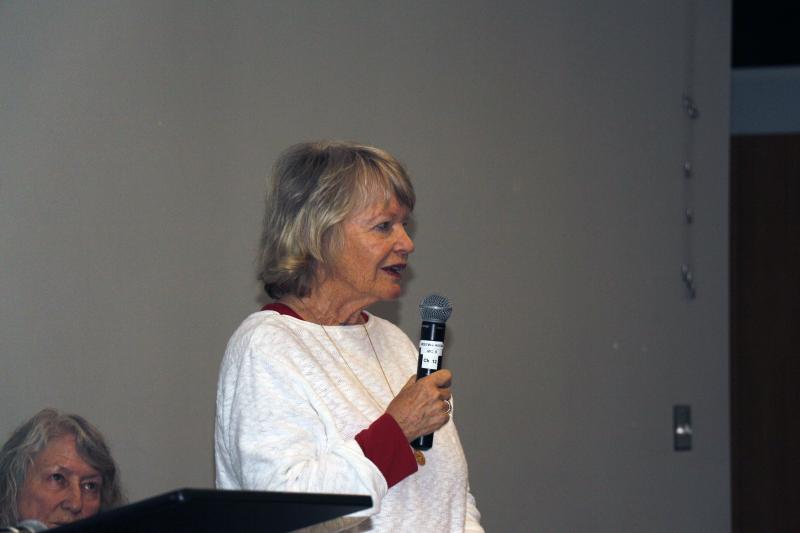
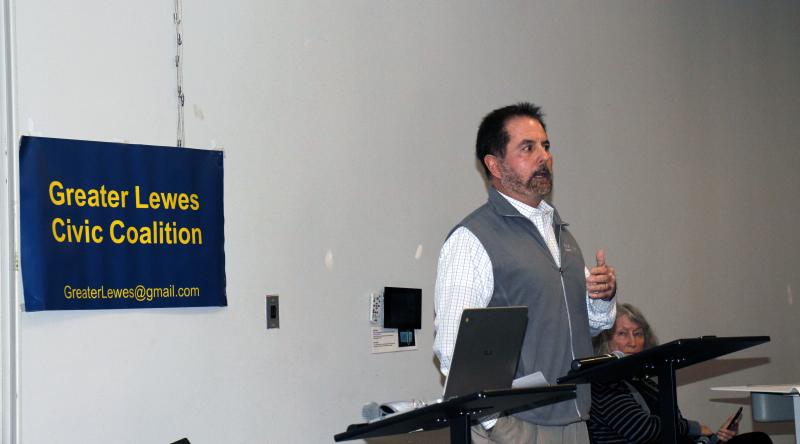
Aaron Mushrush joined the sports team in Summer 2023 to help cover the emerging youth athletics scene in the Cape Region. After lettering in soccer and lacrosse at Sussex Tech, he played lacrosse at Division III Eastern University in St. David's, PA. Aaron coached lacrosse at Sussex Tech in 2009 and 2011. Post-collegiately, Mush played in the Eastern Shore Summer Lacrosse League for Blue Bird Tavern and Saltwater Lacrosse. He competed in several tournaments for the Shamrocks Lacrosse Club, which blossomed into the Maryland Lacrosse League (MDLL). Aaron interned at the Coastal Point before becoming assistant director at WMDT-TV 47 ABC in 2017 and eventually assignment editor in 2018.














